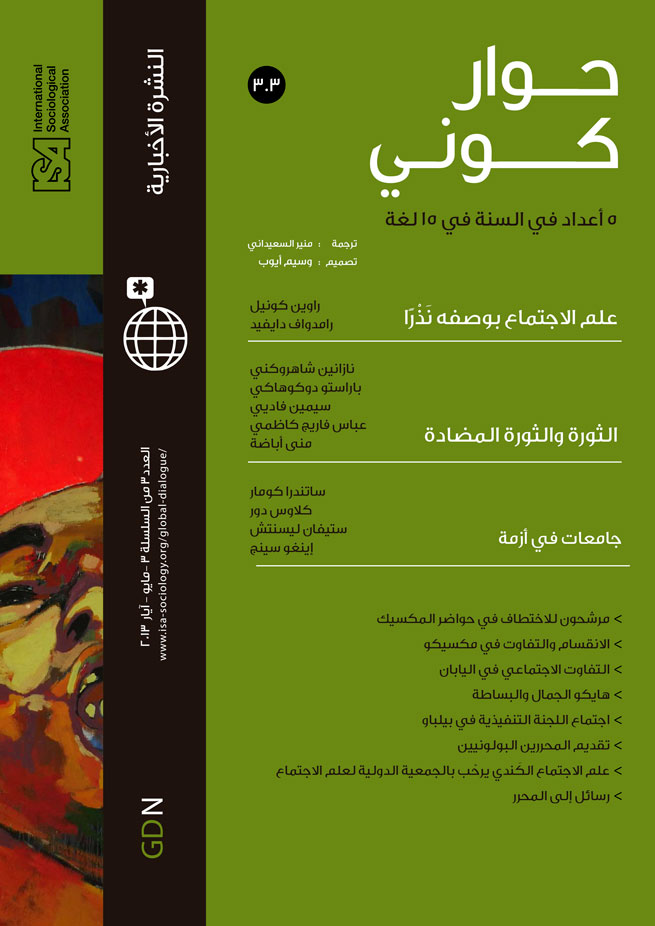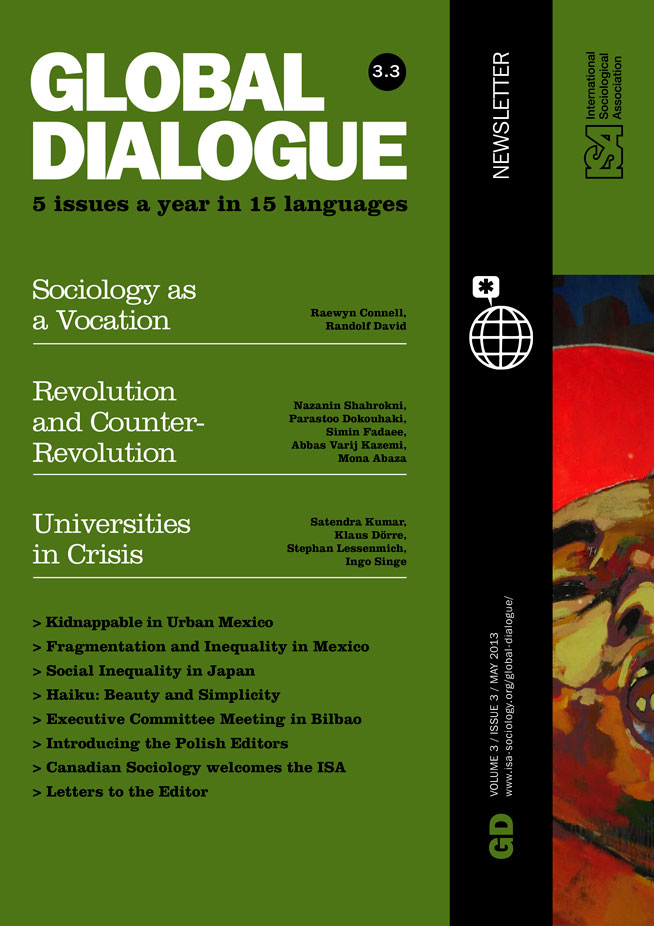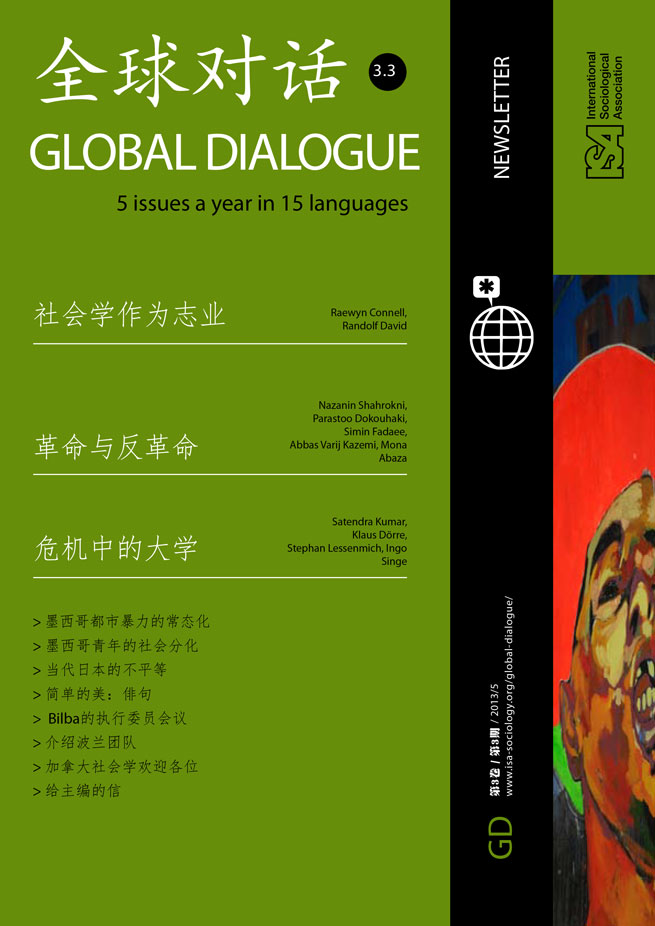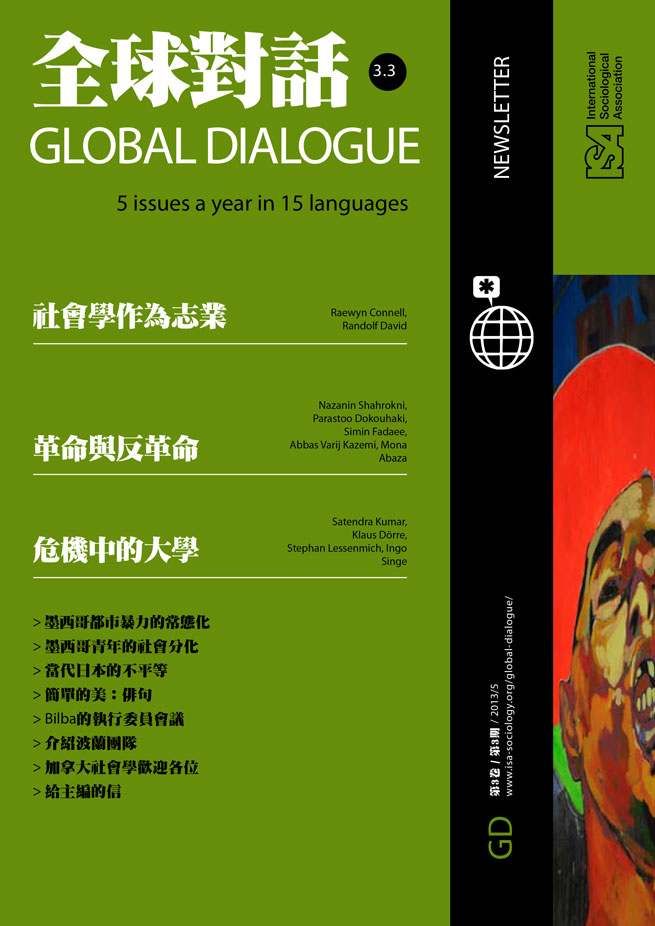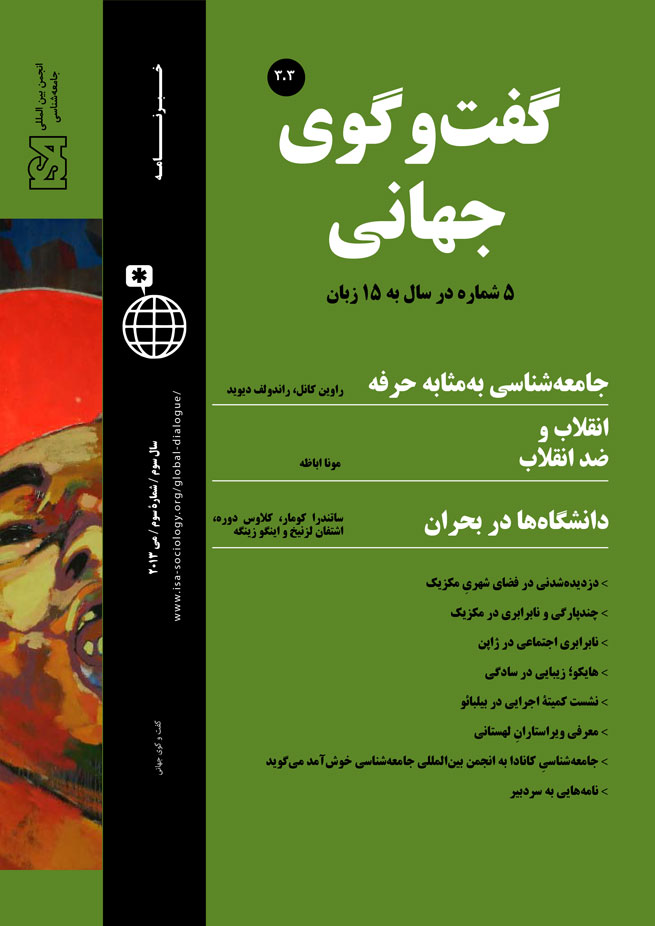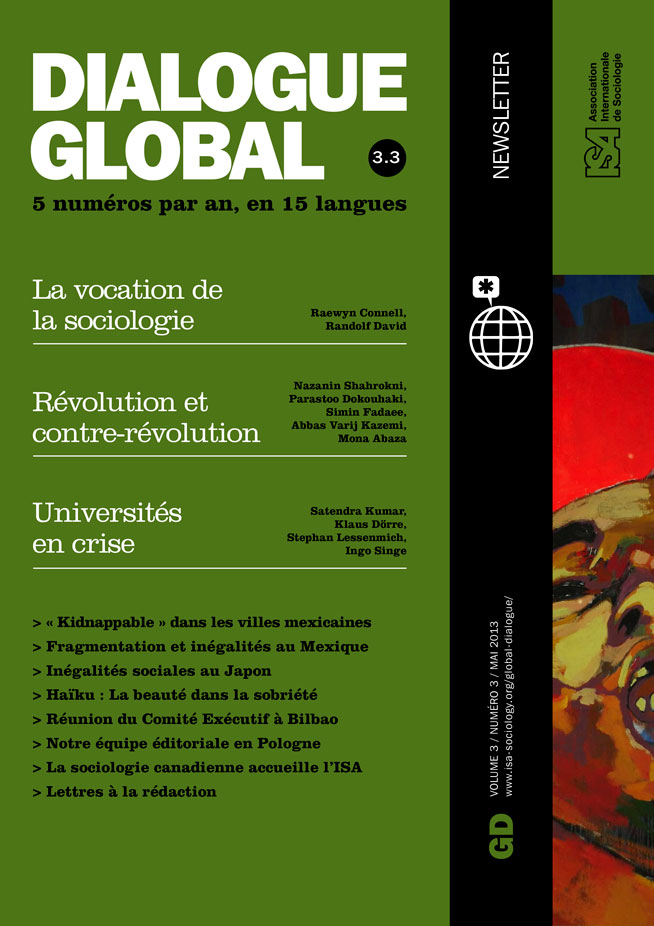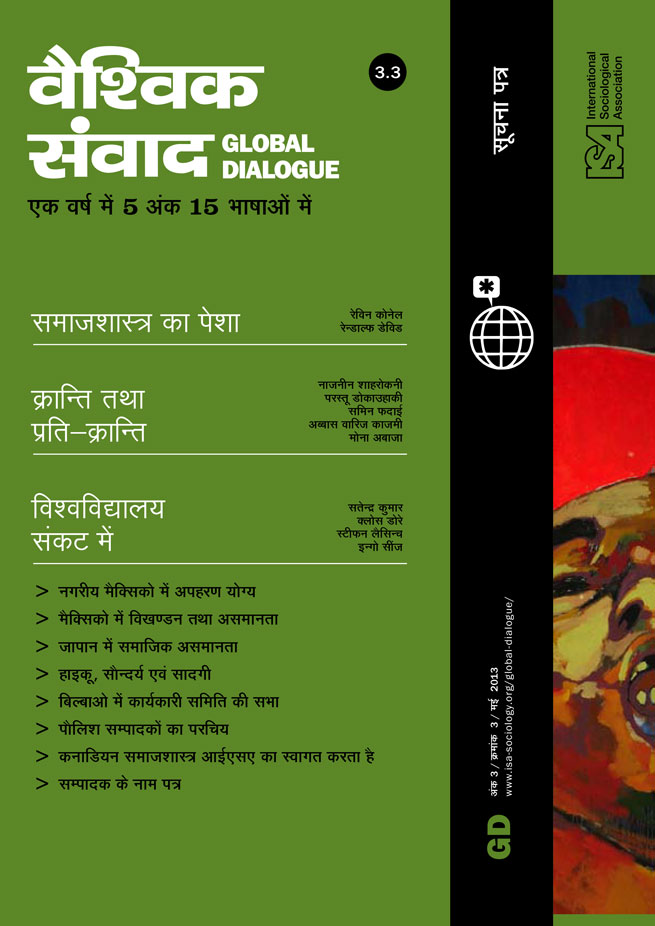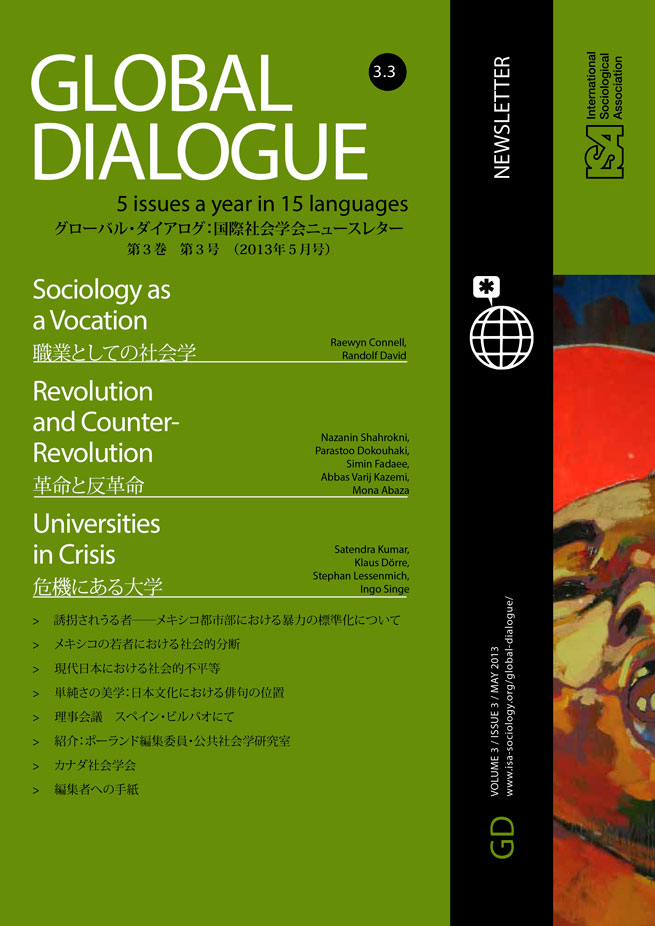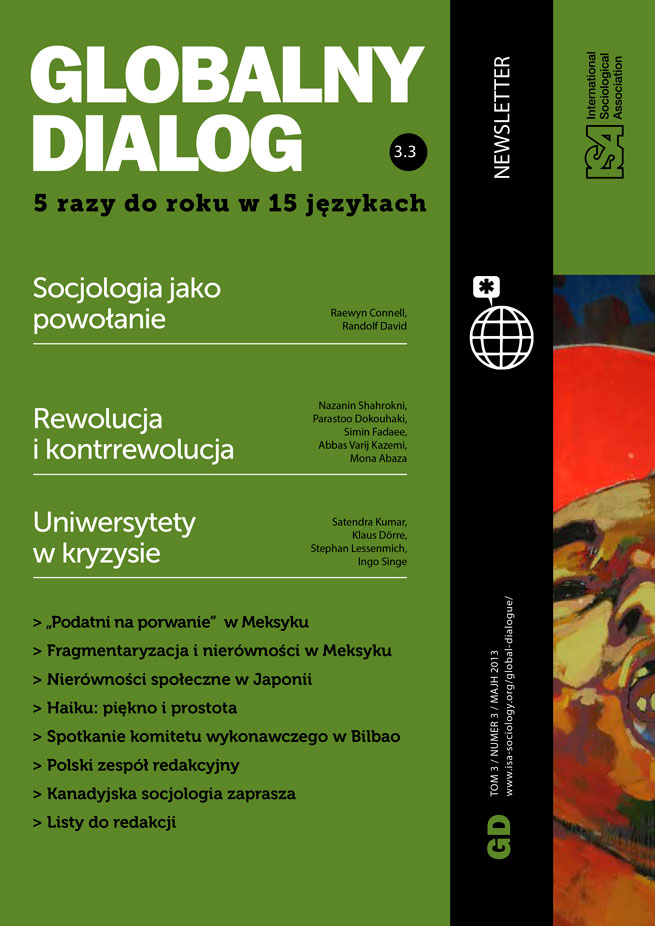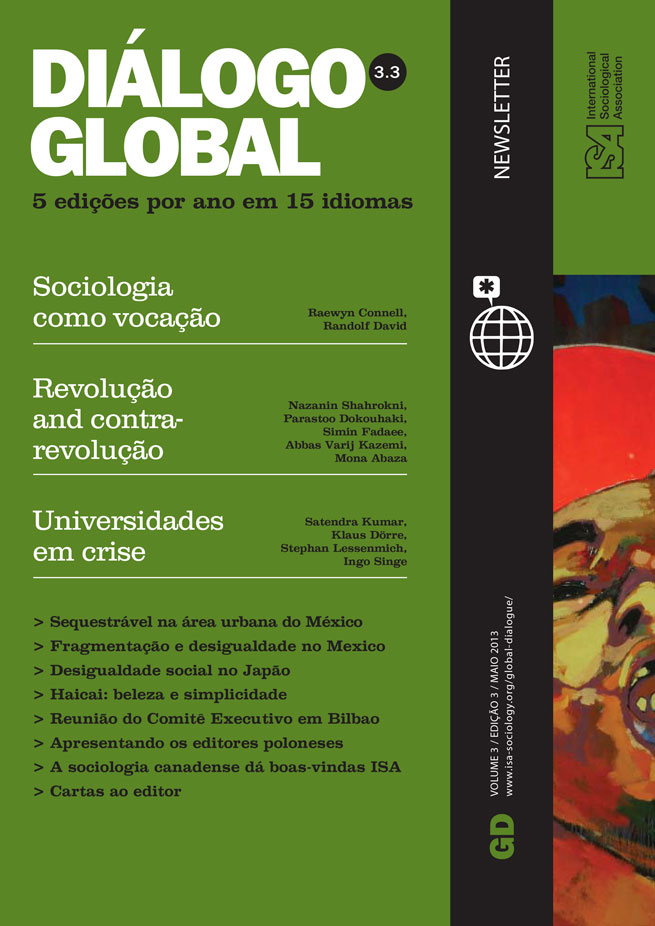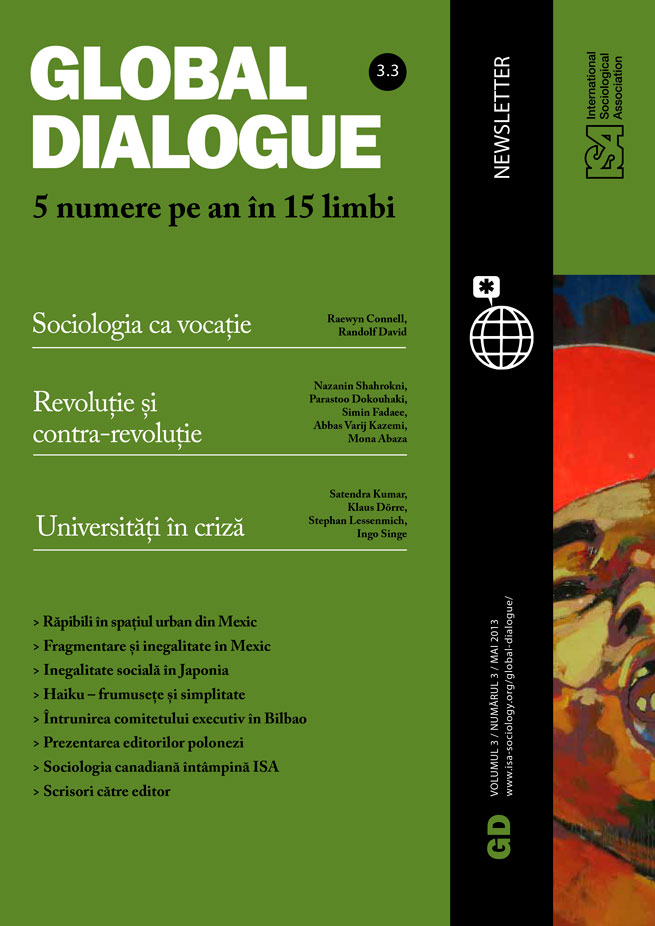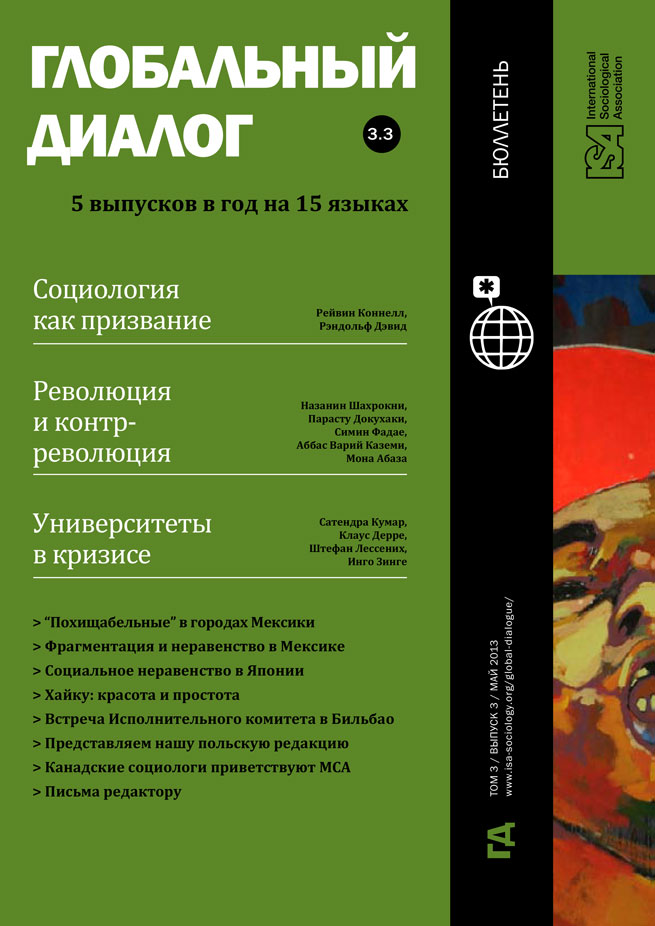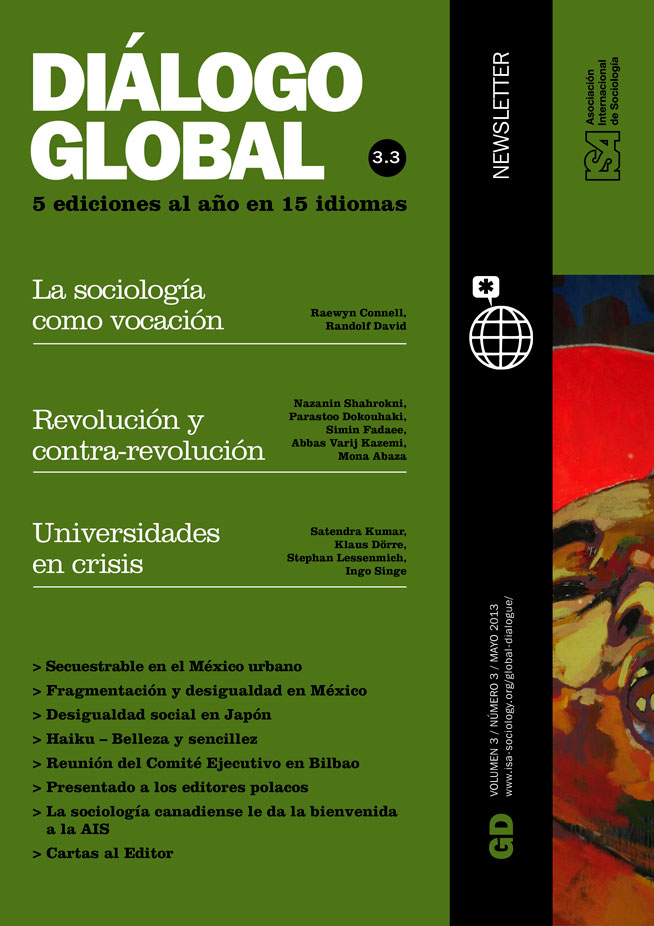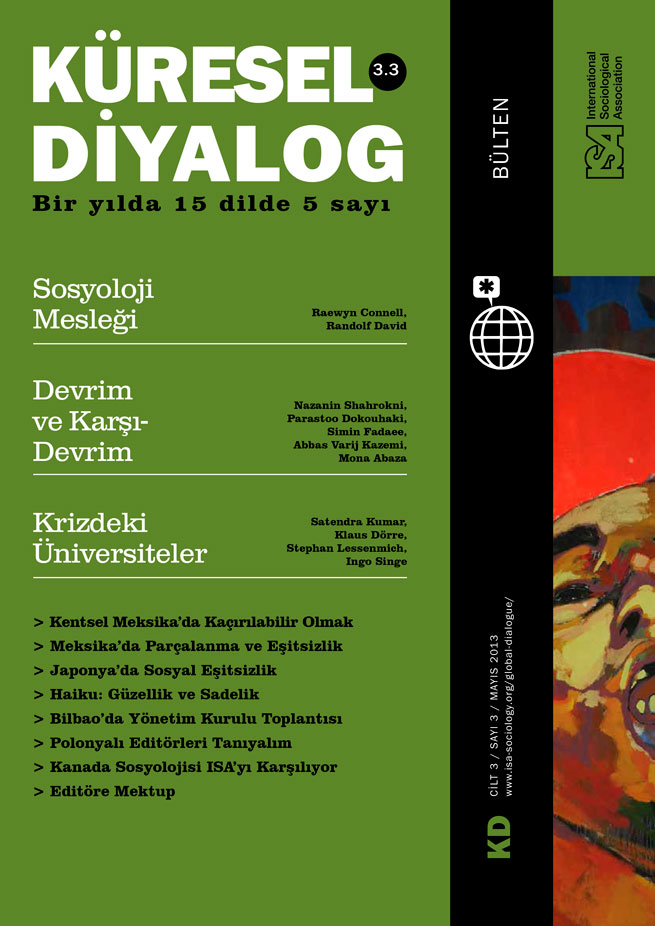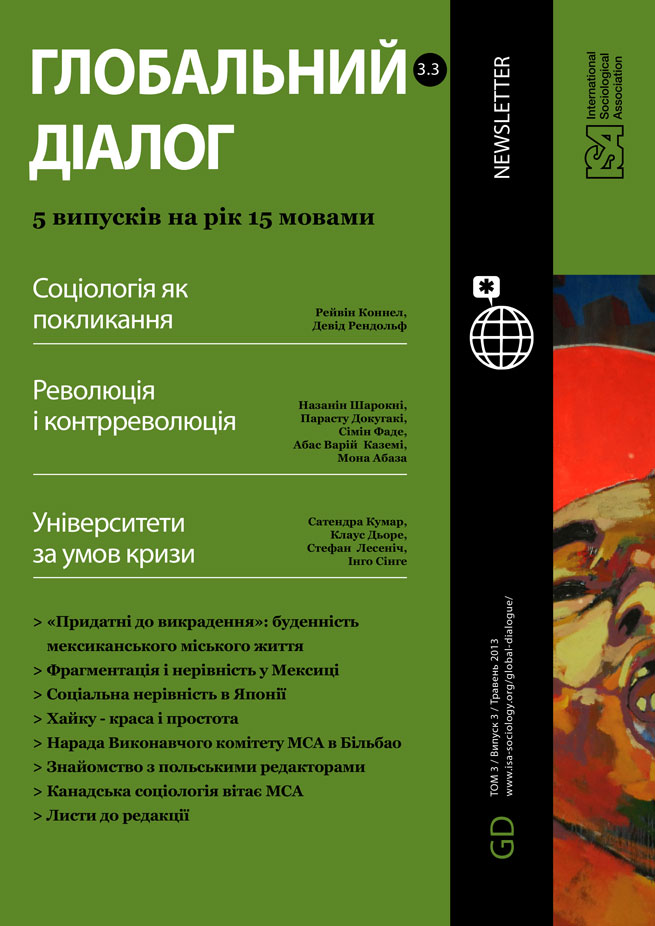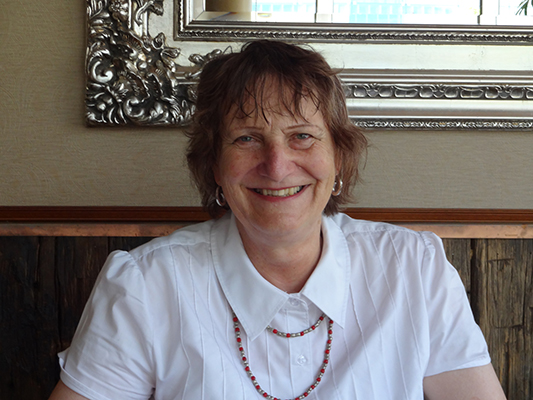Read more about Sociology as a Vocation
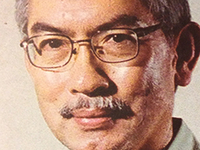
The Vocation of Sociology: Critical Engagement in the Public Realm
by Randolf S. David
April 28, 2013
Raewyn Connell, an Australian sociologist, made her mark with research into class power, and the relation of class and gender in schooling. She rose to fame with her theory of the institutional basis of gender relations in Gender and Power (1987), and established herself as a global figure with her book, Masculinities (1995) which develops her oft-cited notion of hegemonic masculinity. Always interested in the history of sociology and calling attention to its Northern foundations she mounted a severe critique of mainstream sociology in her controversial article, “Why is Classical Theory Classical?” extended into a book, Southern Theory (2007) that gives pride of place to theorists from the Global South. If there is an abiding theme in her work it is that knowledge cannot be understood outside the context of its production – contexts that she has contested all her life. For more see http://www.raewynconnell.net/.
If you are a sociologist you are a worker, you have a trade, you are part of a labor force. Understanding that will save you from delusions of grandeur; and will get you thinking about connections with other workers. Your trade is the making of knowledge, and the teaching and application of knowledge. That’s a collective project, not an individual one. Social science, like natural science, is about shared knowledge. It is inherently public. The circulation of what you know is rightly called “public-ation”.What you contribute to the social process of knowing about the social world is what makes you a sociologist.
Searching for Sociology
Not much sociology was taught in Australia when I was a student in the 1960s. I did a degree in History, and a higher degree in Government. That was good intellectual training; but the world was in flames. I was part of a student movement contesting the war on Vietnam and challenging the conservatism of universities. We wanted more relevant, more committed, knowledge. So we tried to make our own, and set up an amateur Free University to do it.
After my doctorate I traveled to the United States, to a famous Sociology department, to find a framework. I found the department almost in a state of civil war between radical students and right-wing faculty. The university was shortly closed down by a student strike. But I got some great reading done: Lévi-Strauss, Sartre, Mills, Gouldner, Lazarsfeld. Later I noticed they were all men, all white, all from the Global North, and I began reading more widely.
Back in Australia, I was twice involved with groups setting up a new sociology program in a new university. We could build a whole curriculum; it was a lucky historical moment. Today there are much heavier controls on university workers. Yet there is always room for creativity in building curriculum.
Institutions
In Australia, about half of all undergraduate teaching is now done by casual labor. Lots of young people with higher degrees can only scratch a living by juggling part-time jobs in assorted courses on two or three campuses. Can you call that a vocation? In developing countries even tenured academics often have multiple jobs.
From that position, it’s not easy to be active in the institutional machinery of sociology – the journals, the conferences, the research projects, or the associations. Yet neoliberal managers have become obsessed with trying to measure individual output, regardless of such circumstances. Prestige rankings, fee income, numbers of articles, and grant dollars have become the currency of the modern university – just as indices of individual “performance” have in the corporate world. Forty years ago, Claus Offe in a brilliant book, Industry and Inequality, proved this was crazy. In massive organizational complexes it is impossible to determine rationally the share in output due to any one person, or even one category of workers. That’s an example of really useful sociology. But our masters have forgotten it.
Instead, the corporate world, which has increasingly taken over the universities, constructs an individual career as a simulated vocation. Corporate executives, interviewed for the media, declare their deathless passion for the corporation and its shareholders, a passion that generally lasts until the headhunting agency calls. What they are actually doing is building fortunes. Very few people in universities will make fortunes. But most can share in a real, and immensely important, collective project of building knowledge.
Sociological Knowledge
However the current state of the collective project – the institutional machinery and the “body of knowledge” – is deeply problematic. Sociological thought is sedimented from nineteenth-century imperialism and twentieth-century empiricism, spiced by themes from the workers’ movement and the women’s movement, and stained by intellectual cults from functionalism to deconstructionism. Sociological theory as an academic field is appallingly Eurocentric. Sociological research is often mechanical and repetitive; computerization too often substitutes the machines’ processing power for close familiarity with real problems. Social research in developing countries is frequently, as Thandika Mkandawire has remarked, poor research for poor people – under-funded, short-term, and under-theorized.
So the project of sociology requires a critique of sociology – a critique that is now taking new forms. I think the most important unpacks the Global North dominance of sociological knowledge, and brings Southern-generated theory and post-colonial society to the center of the project. There is resistance to that critique, and I understand why. Northern perspectives are institutionalized in the discipline, and thousands of sociologists have built careers on them and expended huge energy in making them work.
Sociological research is hard – at least, hard to do well. I advise my students to leave the textbooks on the shelf until they need to tell an orthogonal rotation from an oblique. (Advice to beginners: forget the oblique.) Every research problem is new – fresh issues are at stake, different resources are at hand, unique patterns in the data turn out to be crucial. The best way to learn method is by doing it. The next best way is by reading really good research reports and thinking about how the researchers solved their problems. Everyone has their own Top Ten; among mine are Barrie Thorne’s Gender Play, Robert Morrell’s From Boys to Gentlemen, and Gordon Childe’s The Dawn of European Civilization. All these magnificent studies involved a hell of a lot of work. Long, solid engagement with a lot of information – without that, the sociological imagination spins its wheels.
Audiences, Publics
A few days ago I went to the launch of a website for autobiographical interviews with older lesbians, called 55 Uppity (http://55upitty.com/). Many of Sydney’s lesbian community were at the happy occasion, and there was much talk about generational turnover, and making ageing visible. Here, it seemed to me, was a community not just imagining itself, but re-making itself through a knowledge project.
Sociologists mostly want their work to be useful, especially to the communities and institutions where the research is done. I’ve been involved in several projects with a strongly reflexive logic. They include research on sexuality and AIDS prevention used by gay communities in Australia (Kippax et al., Sustaining Safe Sex); and research on social inequalities in education, intended for teachers and school policymakers (Connell et al., Making the Difference; Schools & Social Justice).
University-based sociologists need connection with other groups who can use sociological knowledge. So I’ve valued long-term links with the labor movement, which found some use for our research on class; and with teachers and teacher educators, who found some use for our research on schools. The last stage of my academic career has been in a faculty of education and social work, rather than a department of sociology. But the potential audience for sociology is wider again. Some sociology gets into mass media. Some circulates in mysterious ways through international networks, publications, translations, travel, and rumor. I think it’s quite wonderful when I hear in Australia from someone in Brazil, Estonia or China who has come across my work and wants to get in touch. It gives me a sense of the tremendous interweaving global project that sociology can be.
And the Basic Purpose?
I took up this trade because I thought that social science generated the knowledge most important for grappling with our shared problems – of violence, injustice, and destruction. I still think that. Social science can play a key democratic role, as a central part of society’s self-knowledge. I have learnt how difficult it is to produce knowledge, and how difficult it is to put knowledge to work. I have learnt how much depends on co-workers and institutions. I have learnt that we need to think about all these issues “on a world scale” to use Samir Amin’s phrase. It’s a daunting prospect, but it is also inspiring. If sociology is a vocation, it’s not in the old sense of a personal religious calling. It’s a collective calling, and it has to be worldwide.
Raewyn Connell, University of Sydney, Australia
This issue is not available yet in this language.
Request to be notified when the issue is available in your language.
If you prefer, you can access previous issues available in your language:
